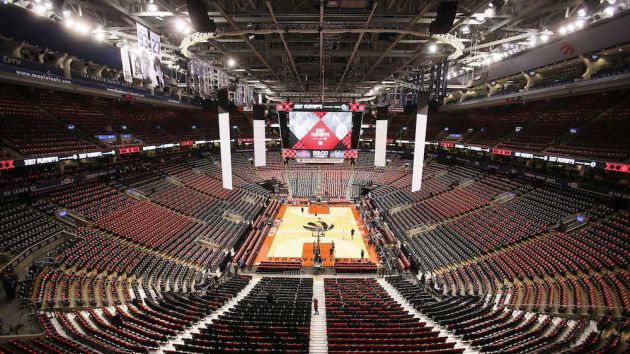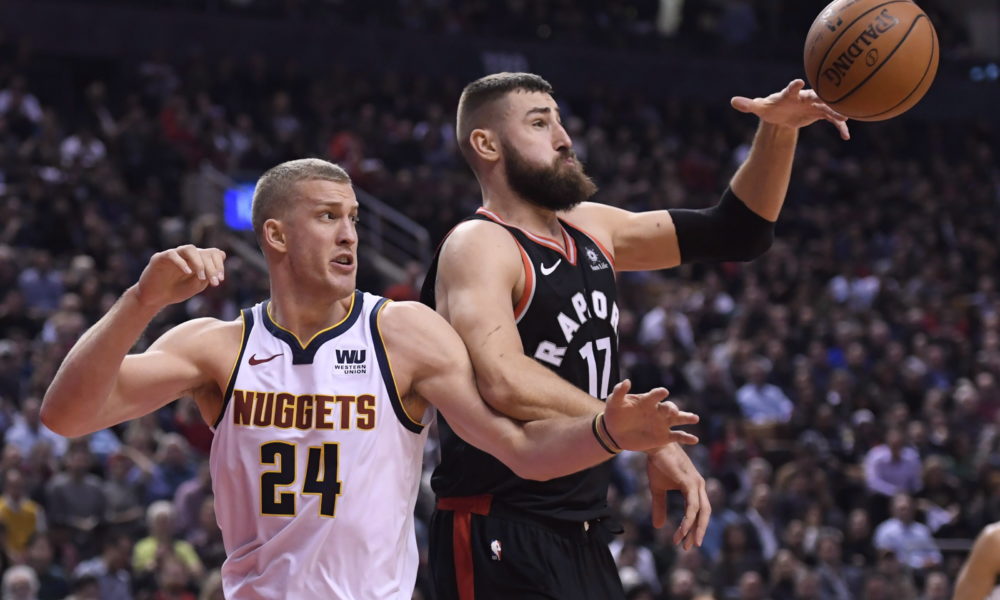Kay Felder was waived by Raptors 905 yesterday in response to allegations of domestic violence taking place this past weekend. The response from Raptors 905 was nearly immediate. Felder was placed on leave by the team and once charged by police in connection with an allegation of domestic violence—less than ten minutes later—was waived. Responses like this are heartening and make it easy to believe that the league will put its most progressive foot forward in all such instances, regardless of the charge or the player it is levelled against. But responses like this, while absolutely the right one, are still not the rule and even when they are the exception, they come with caveats.
The decision by 905 was swift because from a franchise perspective, the investment in Felder as a player weighed less than the potential damaging optics to the team should they do nothing in response to a violent incident so close to home. There is also less jurisdiction up the ladder in 905 waiving Felder, with no final permission needing to be ruled by a league Commissioner on the charges and decision of the team. Finally, if there is any remaining salary it’s likely to be more easily absorbed than an NBA equivalent. Whether or not 905 functions as a farm team in the sense that each player on the roster has a shot at moving up into the parent team, it is commendable that they seem determined to set the tone that player development, as it relates to the overarching franchise, goes farther than only honing athletic ability and that behaviour in players is just as important. But setting the tone where the stakes aren’t as high is easier, and unfortunately this enforcement of zero tolerance has not been the case when it comes to the Toronto Raptors.
James Johnson and Jared Sullinger both came to the Raptors with domestic violence allegations. Sullinger’s charges came in September 2013 and included assault and battery, intimidation of a witness, and destruction of property. He was reported to have repeatedly thrown his girlfriend down to the bed and floor and pinning her there. These charges were dropped when Sullinger’s girlfriend refused to testify in court. Sullinger went on to play two more seasons with the Boston Celtics before being traded to the Raptors for a season, he now plays in China. Johnson’s allegations preceded his second trade to Toronto by only one summer and included a charge of domestic assault causing bodily harm. He was reported to have hit his wife in the face and choked her, punched a hole through a bathroom door where his wife was hiding with their baby and later, after forcibly taking the baby from his wife’s mother, Johnson fled with the baby. Johnson played in Toronto for two seasons until he signed with the Miami Heat, where he continues to play.
If zero tolerance is your policy—even if it is your aim—then what are the parameters? Does zero tolerance for what you deem inexcusable begin once you’ve signed the player? Do you sign their history along with them and if so, how much of that history is vetted to determine whether or not it is reflective of said zero tolerance? Is history relevant, why or why not, and who decides? If it isn’t, should it be acknowledged and if it is, how do you factor it into the future of that player within your organization, your organization of which claims to have zero tolerance for what was, in the cases of Johnson and Sullinger, retroactively tolerated?
These questions are difficult and often sprout more questions rather than clear or definitive answers. Answers which are further complicated given the bearing a player has with the team. Johnson and Sullinger’s contribution to the Raptors were negligible in the long term but at the time of their signing they represented pieces missing from the rotation. Did this make it potentially easier for the Raptors organization to overlook their histories of domestic violence or were these accounts taken into consideration? They would have had to have been, even nominally, when faced with the prospect of getting both men over the border and into Canada. We don’t know because in both cases it was not something the Raptors ever addressed which is, in many ways, part of the cyclical problem of silence and the resulting shame and stigma around domestic violence.
If the Raptors had acknowledging the charges against Johnson and Sullinger, even if the franchise had no idea what to say, saying something would have been preferable to staying silent. Silence is sometimes saying you are complicit rather than saying look, we don’t know how to acknowledge this either, but we are. Most players are acquired rather than coming up with a team so it is fair to assume franchises might only learn about a player’s history once a deal is materializing. If there is anything there that raises a red flag, acknowledging it, rather than ignoring it, gives teams an opportunity to show where a player may not always aligned with the organizations purported values. Talking about uncomfortable issues can show a commitment to engaging with the ongoing dialogue around domestic violence. Teams so rarely deviate from the taking points in which domestic violence and assault are addressed that just by virtue of letting the script slip for a minute would be acknowledging the still huge gaps in the league’s treatment of these incidents—it would be a step toward doing the work.
And doing the work of maintaining a zero tolerance policy with teeth is more often the laborious in-between monitoring rather than the grand reactions as was the case with Felder. Because the big reactions are bad, it means there was an incident where a big reaction by a team is warranted. In a lot of ways the proof of zero tolerance is the last possible thing anyone should want. What I want instead is the work.
What the league has now is better than what came before and comparatively, much better than leagues like the NHL and NFL where there are no league standards whatsoever when it comes to domestic violence, sexual assault and abuse by players. But right now the only league mandated consequence of domestic violence in the NBA is for the offender to have a few appointments with a counsellor in the employ of the league. It is not an automatic suspension or dismissal, it is not, in fact, zero tolerance. It is actually a fair amount of tolerance. The kind of tolerance currently being seen with Jabari Bird as he spends paid leave away from the Celtics, who have not yet waived him from the team despite a horrifying assault on his girlfriend.
The criticisms of a league-mandated zero tolerance policy are apt. When a player is dropped by a team as the result of a domestic violence charge there is a danger to the victim of continued violence in retaliation. Much of this has to do with how domestic violence is talked about and reported in relation to athletes. In almost every instance of domestic violence, sexual assault and abuse being reported against a professional athlete, the article or reporting will end with a list of that athlete’s stats and abilities, as if that were at all relevant. It is not even a subtle way of bookending violence and harm with platitudes and achievements, of sending the message that harm can somehow be mediated by skill and its perceived value. Zero tolerance policies will remain without teeth, as wordy clauses fans and even players are not familiar with, at the end of contracts with no bearing on the lives of victims of abuse until the league leads in demonstrating what responsibility will be borne by them and the team where a perpetrator of violence is employed. This means setting the tone with victim support, counselling where it is needed to perpetrators of violence and victims of it, and financial help if that is also needed. Because this is a rapidly changing landscape it also means ongoing conversations about what is needed.
At the salary most NBA players are making already comes a high level of expectation, mostly this has to do with on court performance, and occasionally in the way players are expected to respond and interact with the press and fans. Why does this expectation of performance and measured response not extend into their personal lives? While money does not mean incrementally giving up your autonomy, athletes are public figures. Now more than ever, where the NBA encourages players to be vocal, to show their personalities, they are, unwittingly or not, part of the larger discourse in the league. Expectation without honest discussion of the parameters, of what should absolutely be unyielding like a no exceptions policy on domestic violence, is as flat as it is dangerous. In a league that still celebrates Kobe Bryant but doesn’t hesitate to dismiss lesser known names, where is the consistency? Doing good should be the status quo, doing better—including moving toward zero tolerance for domestic violence of any kind, at any time, for any player—is the challenge.



